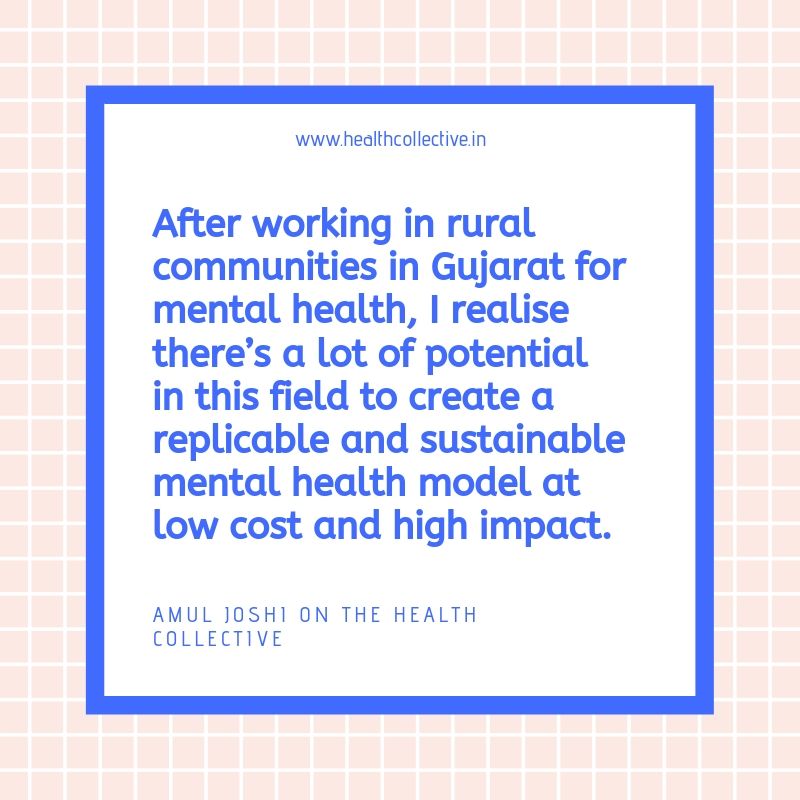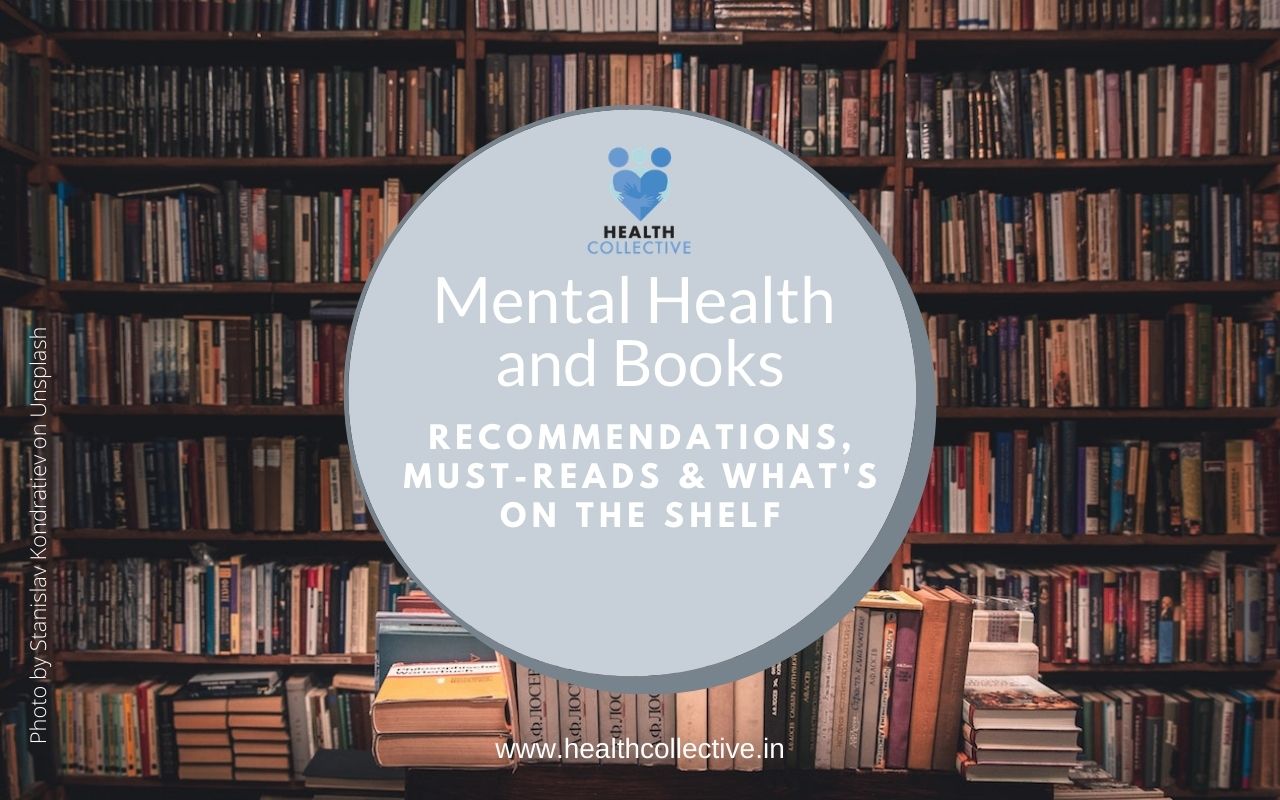Meet the Community Leaders: Amul Joshi of MINDS Foundation
The Health Collective kicks off a series focusing on community leaders working on mental health awarness in the country. Here are excerpts of an interview by Vandita Morarka with the Bhavnagar, Gujarat-based Amul Janakrai Joshi, director, The MINDS Foundation-India. The MINDS (Mental illness and Neurological Disorders) Foundation is a not-for-Profit working in the field of mental health education, awareness, research and patient care since 2012.
This interview has been lightly edited and condensed for clarity.
1. What made you choose mental health as a field of work?
When I applied for a job with MINDS Foundation and started learning more about the organisation, I came to know that (there are) very few NGOs serving in this field that are actually sustainable. Project design and implementation was a very unique and valuable addition to my career. After working in rural communities in Gujarat for mental health, I realise there’s a lot of potential in this field to create a replicable and sustainable mental health model at low cost and high impact. And this gave me job satisfaction and the freedom to develop and implement mental health activities for the benefit of various focus groups.
2. What made you continue in this field of work?
Working in an NGO, there is volatility and many times we deal with low funding, on-ground challenges, environmental issues and (issues) with stakeholders… In the past 4-5 years, (I managed to) pass all hurdles, while being primarily responsible for sustaining programs on our own, even with low resources. We are now in a much (more) stable and strong position to lead mental health projects for different purposes and interventions. This makes me inspired and pushes me forward to reach out to those we have not reached, so as to spread awareness about mental health and remove the stigma.
3. What does mental health mean to you?
Mental health to me is understanding your strength, limitations and coping mechanisms, improving the way of self-care and doing things that you like to do. Happiness is hard to get at the cost of money, hard work and success — it lies in a simple way of helping someone in need and creating emotional well-being out of (a) stressful life and incidents.
ALSO READ: MENTAL HEALTH AND YOU
Technically, its a state of mind where one should be able to communicate, socialise, handle the normal stress of life, live in a family and have a work-life balance.

4. Briefly describe your work?
I started working for MINDS foundation as Program Manager and was promoted to Country Director. My job is to develop and supervise mental health programs and activities in Gujarat and in regions where the foundation runs its projects. We conduct orientation and training sessions for teachers, adolescents, counsellors and paramedic staff for Mental Health First Aid and training of community mental health workers. I also represent the foundation at various events, for CSR, Grant applications and for collaboration with like-minded organisations and individuals. I facilitate internships, volunteer work and research projects with residents, MPH students, social work students and undergraduate students from certain medical schools and colleges from the USA and UK that we collaborate with.
5. What does a day in your life look like?
I work from an office setup based in Bhavnagar, Gujarat and stay there with my family. I periodically visit the MINDS Foundation’s project and field sites for review and supervision. I am in touch over email, WhatsApp and through calls with MINDS’ stakeholders and with staff members to keep track of work progress. I do stretches and yoga in the morning, followed by making my son ready for school and helping my wife in making morning breakfast — she is working for the government of Gujarat, and has to travel 200 km every day, back and forth. After this I work from the office and spend the second half of the day with my kid, for his coaching, going to play etc…and cooking food. That’s how my day looks like.
ALSO READ: KNOW YOUR RIGHTS: MENTAL HEALTHCARE ACT 2017
6. What do you wish people knew about mental health in rural areas of India?
People nowadays have got a lot of awareness because of social media apps, speedy internet and smartphone devices. Particularly younger kids and adolescents are aware of some sort of information about stress and depression. But still, the larger population has no access to care for mental illness and they often end up going to temples, faith healers or local physicians…or other practising professionals. Expert help is lacking and adherence gap is very high as there are not enough medical professionals in mental health even at urban area.
At MINDS Foundation, we constantly create pathways for community to seek help and visit hospitals for treatment. We assist rural patients at a partner hospital and take care of their logistics, medicine and provide counselling at their home, village and at the workplace.
I wish people in rural areas get more sensitised towards mental illness and treat a patient with equality and without disbelief that it will be cured without treatment or medicine.
7. What kind of terms do people use (colloquially) for Mental Health… depression… anxiety etc?
In the Gujarati language, they use the term, ‘gaando chhe’ (mentally retarded or went crazy), as an excuse for not being social and not to go for work or to help in domestic work. Such people get blamed for their own acts and deeds.
8. What do your friends and family think about your work?
My friends think that I am doing great (work) for the mental health cause and my family members sometimes see me as a professional person to treat their mental health conditions. They are happy with my work and feel proud of how I contribute to society’s well-being.
Disclaimer: Material on The Health Collective cannot and does not claim to substitute for expert advice from a trained professional.
Share your feedback and your stories with us, if you like — Tweet @healthcollectif or mail us right here
Feature Image by Mario Purisic on Unsplash


